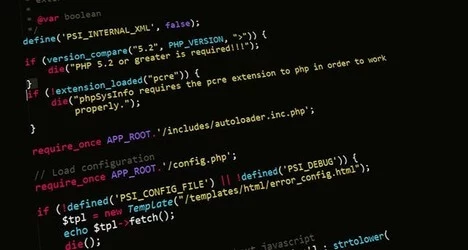Employee Journeys Takes Center Stage in HR Tech Conversation
Add bookmark
The employee journey is often talked about as HR professionals seek new methods for mapping it. Now, technology is stepping in to help them understand and reshape that journey in new ways.
An announcement from Oracle made waves this week as the software giant is entering the space with Oracle Journeys, an enterprise platform that gives companies the ability to deliver personalized experiences to employees over the course of their time with the company and intertwines the work-related portion of their personal journey with career-related (learning, anniversaries, promotions, etc.) and personal milestones.
This is the latest news in a trend that sees more and more companies moving toward a focus on HR technology evolving into work technology with the employee experience at the center of it.
The Experience of the Journey
We define the employee experience as everything that happens to people from their time as a candidate all the way until they depart the company. But beyond being the details of the employee journey, experience is also a vital tool in measuring the effectiveness of the employee journey. Experience data can convey how employees felt about processes, technology, culture and the people that make up the organization.
Say, for example, a person has issues with their work computer and can’t login for a matter of hours on their first day. That does not make for a positive experience and could create an impression that fuels other experiences that impact their overall journey. By mapping the journey, you will ultimately improve the experience, which has a proven impact on engagement and retention.
Employee Experience: The HR Guide to Meeting Worker Expectations in the New Normal

A good employee experience has a powerful effect, as workers are more engaged, committed to mapping out a future with the company and motivated to create business success. We dive into these topics in our guide here.
Learn MoreThe key is finding which points of the employee experience you want to measure to paint an overall picture of the journey. A good place to start is to look at areas where you already have data that can inform which moments are key for experience. Additionally, look at surveys that cover high touch points such as onboarding, training sessions and employee reviews.
Pulse surveys have grown in popularity and when done right, can also provide valuable data that highlights where improvements need to be made along the employee journey.
The Role of Technology
Journey mapping can offer a great deal of value to the organization, be it revealing experiences that HR was unaware of, figuring out what areas are working well, identifying fixes for bad experiences or creating new opportunities to foster equity and inclusion. This can lead to improved prioritization of resources, support people-centered actions and create a common view of employee experience.
Technology is an effective driver of this process by allowing users to segment employees, create personas and incorporate feedback and insights from employees at scale. And now, with journey management technology coming to the fore, the employee can be more active in creating their own experiences. As Josh Bersin noted in a blog post earlier this week when examining the Oracle tool’s features and functionality:
“Journeys appear in a number of ways. Managers or HR can share journeys or assign them to employees. For example, a manager might assign a ‘become a mentor’ journey to an employee that has strong leadership potential, or a reward-focused journey to recognize outstanding performance.
Journeys can also be triggered by certain events, such as a ‘safe travels’ journey based on an expense report for an upcoming flight, or recommended via AI running in the background. For example, a personal development journey may be recommended based on recent consumption of certain learning content.”
Oracle is in stiff competition with other vendors and big tech players looking to get into the employee experience space, something that demand has risen for in 2021 as employers have begun to realize the role experience plays in the lives of their people during the pandemic. At a time where remote work is still common at many companies and employee needs are ever changing, the ability to customize experience and address the things that make employees human has never been greater.
“The needs and expectations of employees have changed drastically. Now more than ever, our workforce needs personalized guidance, support, and motivation," said Jacely Voon, chief people officer, People Culture & Corporate Social Responsibility at Fujifilm, in an interview with Yahoo News."
Image Courtesy of Stock Photo Secrets





















